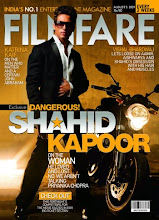Thomas Spencer Monson joined the top ranks of the Mormon Church as a young man, called to the Quorum of the Twelve Apostles at age 36.
On Monday, at age 80, he was named president of The Church of Jesus Christ of Latter-day Saints, the 16th since it was organized in 1830. He immediately declared the church would not veer significantly from the course set by his predecessor, Gordon Hinckley, who died Jan. 27 at age 97.
He takes over at a time when the church is undergoing rapid global growth and coming under close scrutiny because of Mormon Mitt Romney's campaign for president. The church now has 13 million members in 160 countries. Of those, about 5.7 million members are in the USA, and one-third of church members live in Utah.
"There will be no abrupt changes in the courses we've been pursuing," Monson said at an introductory news conference Monday. "Although procedures and programs may be adjusted from time to time, the doctrine is constant."
Monson pledged to continue building bridges with people of other faiths.
The very fact that he held a news conference — and fielded questions — dispelled predictions that he might be more reserved than the media-savvy Hinckley.
He has a background in business; he worked as an advertising executive for the church-owned newspaper, the Deseret News, and as general manager of Deseret Press, a large commercial printing company. For 19 years, he was chairman of the board for the Deseret News.
Asked about his health, Monson said his diabetes is "under control totally" and would not prevent him from traveling extensively, as Hinckley did.
Monson is the youngest man to hold the presidency since Spencer Kimball, who was 78 when named president in 1973. Mormon presidents serve for life.
Revered as a prophet
The president of the Mormon church is revered as a "prophet, seer and revelator." Because the church believes in continuing revelation, past church presidents have changed church teachings, outlawing polygamy in 1890 and lifting a ban in 1978 on black men holding the Mormon priesthood.
Jon Huntsman Sr., a billionaire philanthropist who has known Monson for 35 years, described him as a church leader with a strong personal touch. He said Monson was often late for their fly-fishing outings because he would stop at a hospital to visit an ill church member.
Monson also is known for his folksy use of personal stories to illustrate religious topics.
He freely quotes from the Bible but also from Dickens, one of his favorite authors. In a 1991 article in a church magazine, Monson cited a passage from A Christmas Carol to illustrate his point that children "are most perceptive and often utter profound truths."
Monson will have to fill the shoes of a man who became the most visible church president in history.
"Those are very big shoes to fill, but President Monson has very big feet," says Michael Ballam, founder and general director of the Utah Festival Opera Company and Monson's friend. "He will be a wonderful emissary for the church."
'He talks in parables'
Monson and his wife, Frances, have three children, eight grandchildren and four great-grandchildren. He is a trustee of Brigham Young University, and has been on the national executive board of Boy Scouts of America since 1969.
Monson named as his two top advisers Henry Eyring, 74, and Dieter Uchtdorf, 67, a Czech-born former German airline executive.
Uchtdorf says Monson is a hero in Germany for prophesying the fall of the Berlin Wall and for building a Mormon temple in the former East Germany before the wall fell.
"People often say, 'Well, he tells stories,' " Uchtdorf says. "Well, no, I think he talks in parables, like the Savior did.
"He shares it in a way my grandchild can understand it."
Boyd Packer, 83, is now the senior apostle next in line for the church presidency.
If Monson's lifetime appointment as church president is marked by the same acts of kindness he likes to talk about in public, it could serve the church well as it continues to seek its place in the American mainstream, says Richard Bushman, a Mormon scholar.
"If you get down to fundamental acts of goodness, it sort of reduces the doctrinal matters — all the concern about whether Mormons are crazy in their beliefs," Bushman says. "I look forward to this, to get back to basics."
Passey reports daily for The Spectrum in St. George, Utah.
Contributing: The Associated Press

0 Comments:
Post a Comment